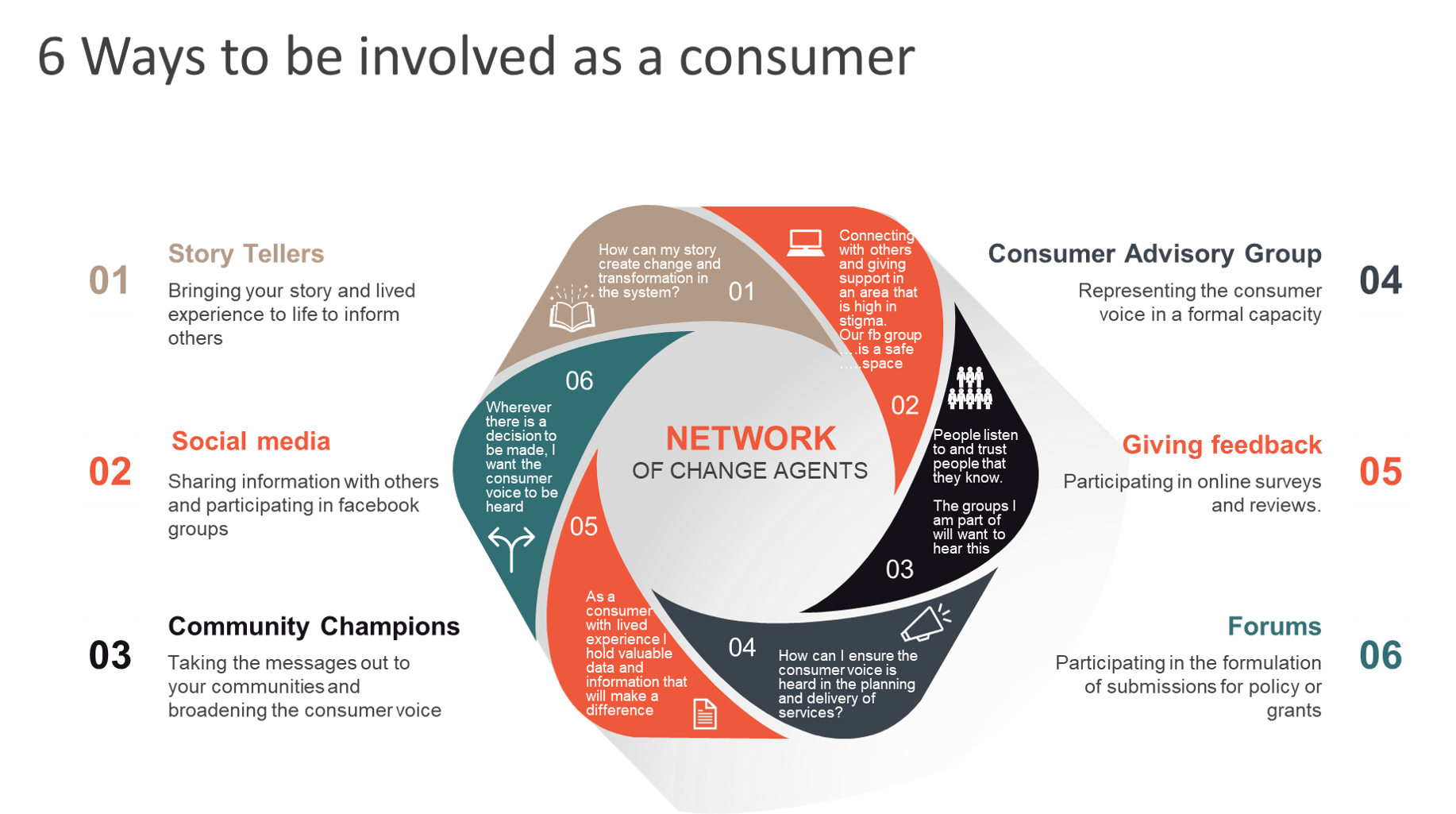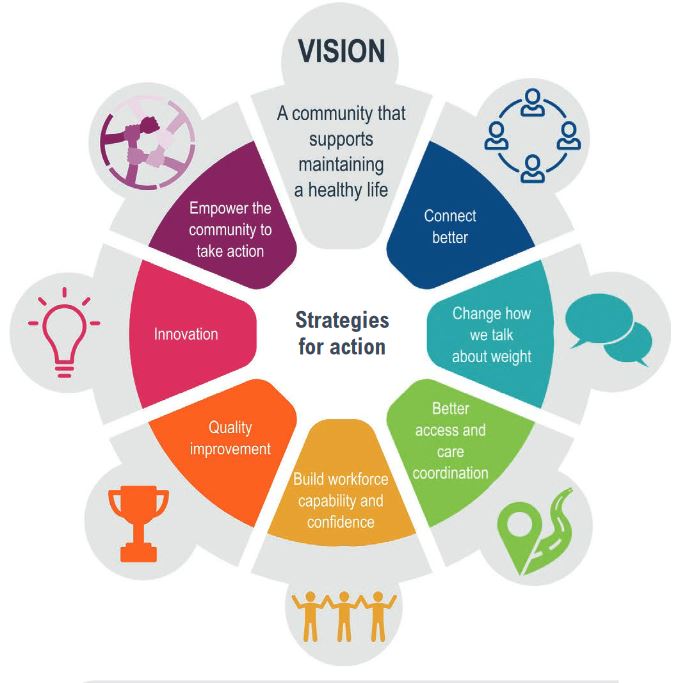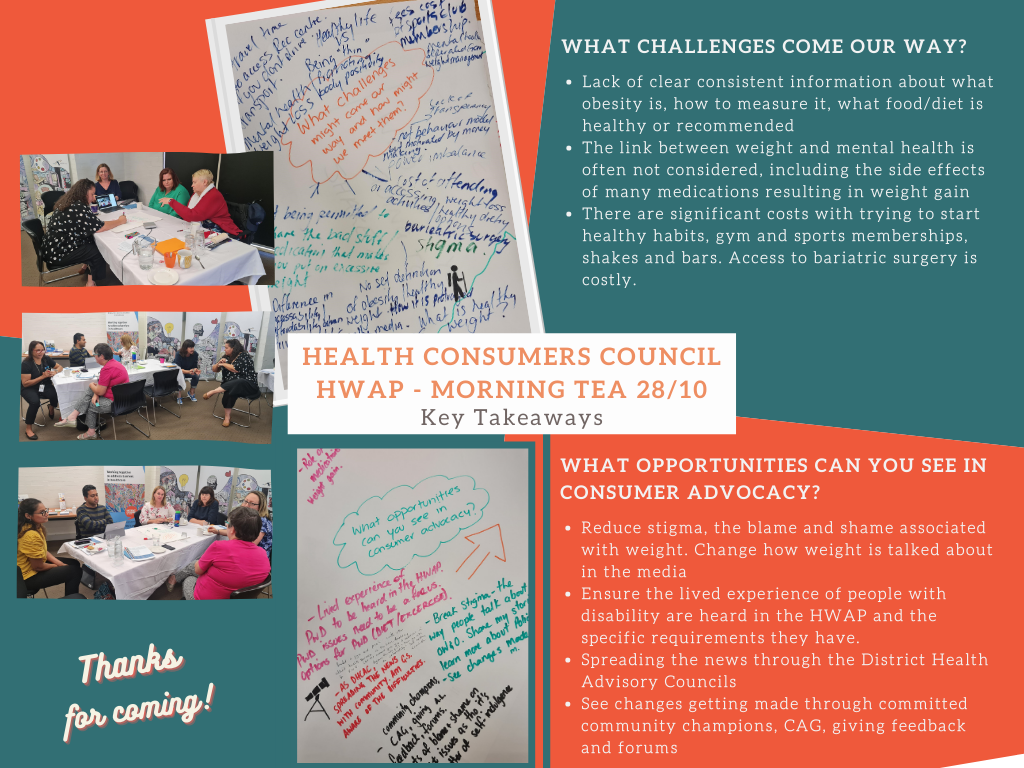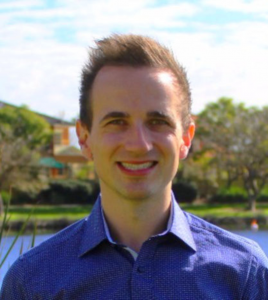By Clare Mullen, A/Executive Director, 07/03/22
World Obesity Day 2022 – everybody needs to act!
World Obesity Day is marked on 4 March each year. The theme this year is “everybody needs to act”.
At Health Consumers’ Council (HCC) we’re acting by taking on the responsibility for hosting the WELL Collaborative (Weight Education and Lifestyle Leadership) – see below.
World Obesity Day is… complicated.
I know some people see it as a day when people in larger bodies are demonised. They utterly reject the term obesity and question the science that’s referred to as showing a link between increased weight and poorer health outcomes.
I have concerns about these too.
But I also know that many people in the community have negative health experiences relating to obesity. Whether that’s concerns about weight related health issues, or the mental health impacts of weight stigma and bias.
And so, through our work at HCC, we put forward the wide range of consumer perspectives that we’ve heard, while also going where there is political will, and some resources – and for now, that is obesity. (See below for more information about how we’re trying to change the conversation through promoting consumer and lived experience voices on this topic…)
I had the chance to take part in a couple of events last week to mark World Obesity Day. There is so much great work happening in this area but I’m particularly excited to see the momentum and recognition building for the need for diverse lived experience voices to be leading this work.
A couple of organisations that are worth following on social media, or subscribing to their mailing lists:
- Australia: the Weight Issues Network. This is a group led by and for people with lived experience of weight issues. They run regular community conversations where members can learn about various aspects of the science of obesity – as well as advocating for more understanding of the personal aspects – find out more at www.auswin.org.au
- Europe: the European Coalition for People living with Obesity. This group works collaboratively across Europe to improve the lives of people who are living with and are affected by the chronic disease of obesity through advocacy, policy and education. They run regular “patient lounge” discussions with consumers and researchers – find out more at https://eurobesity.org/
I really believe that only by raising lived experience voices in this space will we see real lasting positive change.
But it can be difficult to raise your head above the parapet in this space as a person with lived experience – particularly for people impacted by severe obesity.
We’ve all been so immersed in the idea that our weight is “our fault” that body shaming and judgement are practically sanctioned by some public health campaigns (grabbable gut anyone?).
And so health services and systems who want to hear more lived experience perspectives have to collectively invest in supporting people to develop their confidence to share their personal experiences in public settings for the greater good, and in creating safe places for those conversations to take place.
We’re lucky in Western Australia that the WA Department of Health and the WA Primary Health Alliance have recognised this and continue to support WA consumers to be heard on this topic.
Putting the public back in public health
I first heard the phrase “Putting the public back in public health” in a WA Department of Health publication, led by Professor Tarun Weeramanthri when he was the Chief Health Officer there.
It has stuck with me since. I think it’s because I see that so many of the elements that impact on our health and wellbeing are factors in the realm of our social worlds, rather than in the realm of our clinical experience.
This idea sharpened considerably for me when I took on HCC’s involvement in what was then called “The Obesity Collaborative – Partners in Change” project. A forward thinking team at the WA Department of Health and the WA Primary Health Alliance gave HCC a small grant to gather consumer insights so that work to address the health impacts of obesity was grounded in the experience of people with lived experience.
That work led to a survey with 750 responses, 25 first-person accounts, and two videos featuring consumers sharing their perspectives – perspectives that were shared at the two Summits on the subject in 2018. (You can see that work here.) That work shaped the development of the WA Healthy Weight Action Plan.
What emerged from all the stories and feedback people shared was:
- people’s experiences relating to weight and health vary widely. This is backed up by the academic literature which highlights the heterogeneity of people’s experiences of obesity.
- weight bias and stigma is a huge public health issue that is under-recognised by health professionals and public health teams. Academic evidence suggests that in some cases, the health impact of weight stigma can be more harmful than the health impact related to weight.
- that many of things that people turned to when seeking to address this issue were non-clinical. One hypothesis for this that diet culture needs us all to feel individually responsible for our weight so that we will buy programs and products that promise the holy grail of long-term weight loss.
Another personal observation for me was the role that our current economic model plays in our health. Whether it’s because there is limited regulation of the food industry (because #profit), or because people living on no/low-incomes are dealing with a whole range of issues including how to make ends meet, or because we are encouraged to believe we should be so committed to our jobs that we’d rather miss a meal than an important meeting – the economic environment has a huge impact on our health and health inequity.
Partnering with consumers – in implementing positive change
The value of lived experience perspectives in the Healthy Weight Action Plan was recognised as essential and another grant from the Department of Health enabled HCC to gather more consumer insights to support the implementation of the Plan. (Again, kudos to the Department of Health for their forward thinking approach. Too often “consumer engagement” stops once the plan is published.)
That grant enabled HCC to gather insights from people with diverse perspectives on the topic including Aboriginal people, people from culturally and linguistically diverse communities, men, young people, and people with disability. It also enabled us to ensure that consumer perspectives shaped the critical activities being implemented as part of the plan. In this way, consumers or consumer perspectives were involved as projects were shaped and developed including:
- Scoping a new proof of concept program offering virtual support to consumers who were using evidence-based very low calorie diet products
- Scoping commissioning standards for DoH and WAPHA to use when commissioning services in this area
- Scoping and refining the collaborative approach to addressing this issue in WA ↓↓
Introducing the WA WELL Collaborative!
The WA WELL Collaborative (WELL = weight education and lifestyle leadership) is the culmination of many hours of work by many teams of people across the community and the health sector.
The WELL Collaborative is a network where everyone with an interest in addressing the health impacts of weight, overweight, and obesity can come together. Whether that’s to find information about existing services, where consumers can be connected with clinicians and researchers who are working on new concepts, or to share challenges and wins about working in this very complex field.
One main way that people can access the network is through our freshly launched website:
You can sign up there to receive regular updates about Collaborative activities. The website is a living site and will be updated regularly.
HCC, WA Department of Health and WA Primary Health Alliance – taking action
I’m delighted to say that HCC has been given a grant by the WA Department of Health and the WA Primary Health Alliance to enable us to continue to ensure that lived experience voices continue to shape and drive this work. Part of our role is to host the backbone function of the WELL Collaborative. In practice this means hosting different networks, organising events, and managing the website.
The first thing I’m really proud of is the name – originally in the Plan this group was going to be the Obesity Collaborative. But since we started talking to consumers, it was clear that the term “obesity” was not one they connected with. It has become widely understood in the community as a pejorative term – and so, unsurprisingly, many consumers aren’t drawn to it. And so when working on a brand and name for the network, we made sure that was clear to the team developing those.
(Note of caution… we know that some consumers are very comfortable with the term and have questioned how other people like them – who are seeking help for the health impacts of obesity – will find their way to the website. We are addressing that through the data we use for search engine optimisation and our communications with other partners.)
The other ways that consumers have shaped this network include the imagery that has been used, and the focus on weight stigma.
Representation matters
We regularly hear from consumers in larger bodies that they are tired of never seeing any positive images when discussing weight and health. They want to see themselves reflected in images that reflect their lives – which are not all doom and gloom. So we connected the website team with a number of the image libraries that have been curated by various groups around the world.
Weight stigma – a major public health issue
A major finding from our work with consumers was the impact that shame, embarrassment and stigma has on people’s health. Whether that’s explicit bias being expressed by health professionals, or implicit in the body language; or it might also be internalised weight stigma – where we’ve been brought up to believe (incorrectly) that we are entirely responsible for our weight and so if we aren’t able to shape our bodies the way we want to, then it is a personal failing. All of these can input on our health – if we don’t receive the correct healthcare advice and treatment because of incorrect assumptions based on our size; if we don’t reach out for treatment because we’re embarrassed our efforts haven’t worked, or if we cope with body shaming by opting for less healthy behaviours.
HCC will be doing a lot more on this topic in the coming months – so watch this space.
But for now, check out this video where consumers talk about their own experiences of weight stigma in health services, and find out what you can do to become aware of any unintentional bias you may hold at www.hconc.org.au/end-weight-stigma







